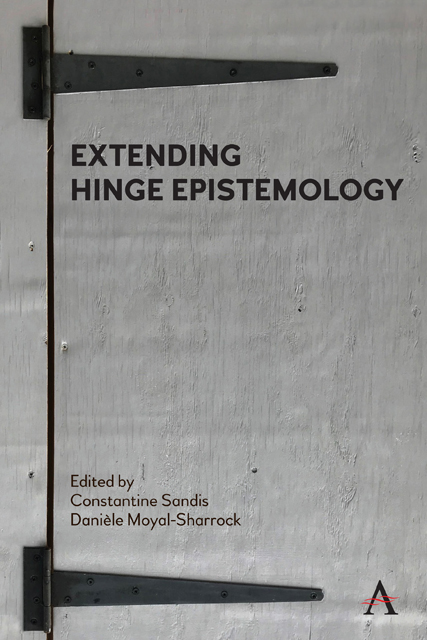Chapter Three - Which Hinge Epistemology between Animal, Biscopic and Constitutivist?
Published online by Cambridge University Press: 09 December 2022
Summary
Some Basic Methodological Considerations
Hinge epistemology (henceforth, HE) is an increasingly popular trend in contemporary philosophy. Building on Wittgenstein's insight that justification and knowledge always take place within a system of assumptions, or ‘hinges’, hinge epistemologists have developed a number of competing accounts of On Certainty (henceforth, OC) and of how best to turn Wittgenstein's original insights into a systematic approach to issues concerning justification, knowledge, scepticism, relativism, disagreement, testimony, trust, epistemic injustice and more.
Given its lineage, HE is naturally also concerned with exegetical issues. Not all hinge epistemologists distinguish carefully between claims advanced as exegetical and theses put forward as philosophical developments of Wittgenstein's original insights. To some degree, this is to be expected, because how one is struck by a text will reflect in the insights one will develop in a more systematic fashion. Conversely, what strikes one in a text is often a reflection of one's pre-existing philosophical orientation. Nonetheless, it is important to be careful to distinguish the nature of one's claims, in the interest not only of exegetical accuracy but also of what kind of evidence should be brought to bear on their assessment – whether textual and contextual, when exegesis is concerned, or philosophical, when more systematic philosophical development is at issue.
In the following, I shall consider two prominent kinds of HE, which are excellent examples of methodological accuracy – that of Danièle Moyal-Sharrock (§2) and Duncan Pritchard (§3). Their impeccable methodology notwithstanding, I shall take issue with both, and thereby defend the kind of reading of OC I proposed in Coliva (2010) and subsequent writings, as well as (§4) the kind of constitutivist HE I have been proposing since Coliva (2015).
Moyal-Sharrock's Animal Hinge Epistemology
Danièle Moyal-Sharrock's version of HE clearly belongs to those readings of Wittgenstein's OC that aim at exegetical accuracy, while also highlighting the significance of this work for contemporary epistemology. I shall focus on some exegetical issues first and then turn to Moyal-Sharrock's take on the significance of OC for epistemology.
As is well known, according to Moyal-Sharrock (2005), hinges are rules and not propositions, since they fail at bipolarity.
- Type
- Chapter
- Information
- Extending Hinge Epistemology , pp. 51 - 70Publisher: Anthem PressPrint publication year: 2022

